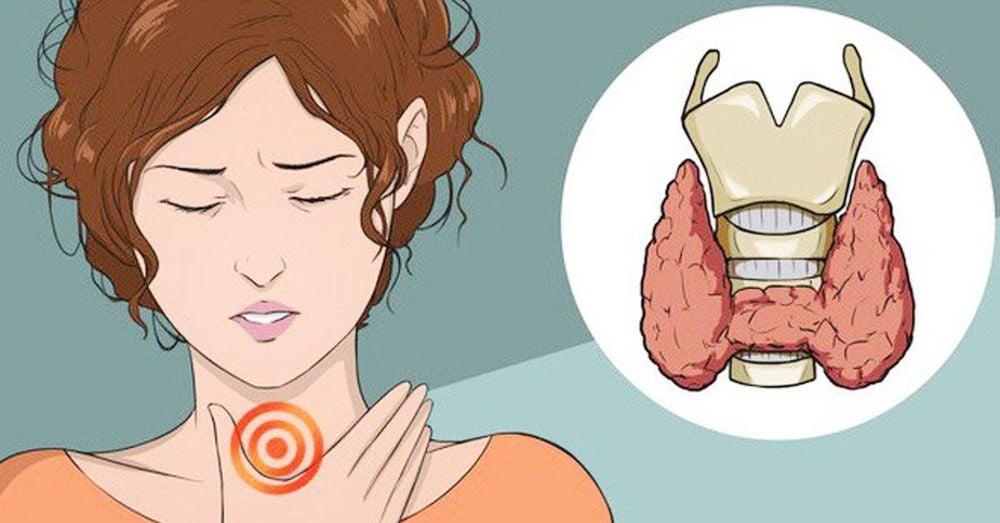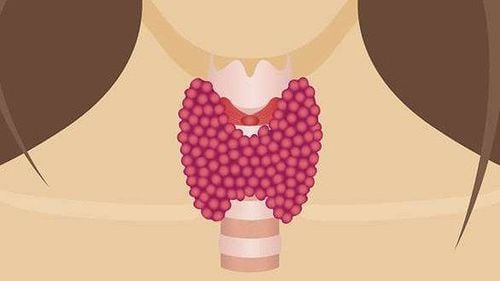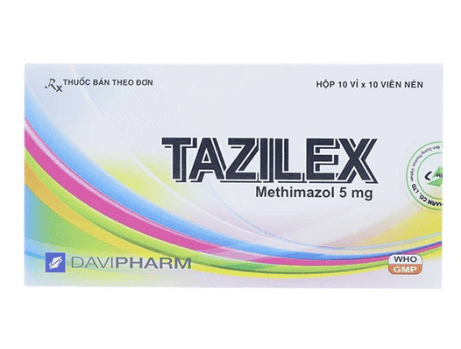This is an automatically translated article.
The thyroid gland is an important endocrine gland in the body. It secretes hormones that help regulate the body's most basic metabolic activities. Any disturbance in thyroid hormone secretion will affect how your body works. However, the manifestations of thyroid dysfunction are often confused with other pathological signs and can be missed, making examination and treatment more difficult.Video content is professionally consulted by MSc. Dr. Le Thi My, Director of Thyroid Pathology Center, Vinmec Times City Hospital
1. The function of the thyroid gland in the body
The disorders of thyroid function are divided into two main groups, the most common today are hyperthyroidism and hypothyroidism. In particular, hyperthyroidism occurs when the thyroid gland is overactive, secreting too many hormones. Causes of hyperthyroidism may be due to endocrine disorders, Graves' disease, which is common in women aged 30-50 years old, or due to iodine overdose during treatment.Hypothyroidism is an autoimmune disease that occurs when the thyroid gland is underactive. Hypothyroidism can be caused by thyroidectomy, iodine deficiency, use of anti-thyroid drugs, or hormonal changes.
Both of the above conditions, if not treated in time, will affect all aspects of health, especially the functioning of the thyroid gland, and can even lead to thyroid cancer.
2. Recognizing signs of thyroid dysfunction
An enlarged goiter/neck may be accompanied by choking, difficulty swallowing, or difficulty breathing. Brachycephalic syndrome, joint pain: you will experience numbness and tingling in your arms due to a lack of signaling hormone leading to the brain sending information to the muscles more slowly than usual. As for hyperthyroidism, the patient is very susceptible to stiffness and difficulty coordinating the limbs. Weakened hair and skin: When you have hypothyroidism, your hair becomes brittle, frizzy, and brittle, and your skin becomes dry, flaky, and prone to cold. The reason is due to a thyroid hormone disorder that makes it difficult for hair to grow. In contrast, patients with hyperthyroidism are often sensitive to heat and sweat a lot. Menstrual disorders and risk of infertility: Hypothyroidism greatly affects menstrual problems. Hypothyroidism can be menorrhagia, polymenorrhea. Conversely, hyperthyroidism can cause amenorrhea or oligomenorrhea (shorter periods). This condition is caused by changing hormone levels, which affect menstruation, and alter the menstrual cycle. As a result, the follicles are also disturbed, making fertilization and childbirth difficult. Decreased libido: Thyroid diseases are directly related to hormones. Therefore, if the disease develops for a long time, it will cause an imbalance of estrogen hormone, making the patient no longer desire and infertile. Thyroid disease specifically affects the menstrual cycle as well as the ovulation cycle. Having intestinal problems: Thyroid hormone affects almost every part of the body and the digestive system is no exception. People with hypothyroidism often experience constipation, while people with hyperthyroidism often have diarrhea and abdominal pain.
Currently with the increasing level of thyroid cancer as well as thyroid diseases, therefore, the need for intensive examination and treatment of this disease is extremely necessary. Vinmec Hospital has established a CENTER for Thyroid Diseases (SERVICE LINE), at the Thyroid Pathology Center you will receive:
Examination - consultation by a team of experienced and trained doctors and specialists. in the world's leading developed countries in management and intensive treatment of thyroid diseases. You will be examined, examined, evaluated and tested with a system of modern machines and equipment that meet international standards (the GE Logiq S8 ultrasound machine integrates tissue elastography - a technique that The latest ultrasound technique in thyroid disease diagnosis, Multi-segment computed tomography system, 3 Tesla magnetic resonance imaging machine, ....) Multi-specialty treatment model towards individualization: Endocrinology - Diagnostic Imaging - Interspecialty (ear, nose, throat) - Oncology will be the best condition for you to be examined and treated with the most optimal regimen - the most suitable.
Please dial HOTLINE for more information or register for an appointment HERE. Download MyVinmec app to make appointments faster and to manage your bookings easily.














